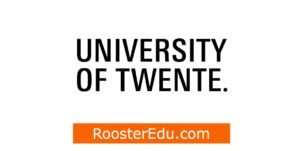Are you a Master’s graduate looking for fully funded PhD opportunities? Explore the range of funded PhD programs available at the University of Southern Denmark, Denmark. Apply online now and kickstart your doctoral journey!
1. Fully Funded PhD Position in 2D polaritons
Summary of PhD Program:
POLIMA at the Mads Clausen Institute at the University of Southern Denmark seeks a talented candidate to fill a PhD student position within the three main research areas of the Center for Polariton-driven Light-Matter Interactions {POLIMA): 2D polaritons as probes of solid-state matter (e.g. quantum plasmonics), polaritons for chiral or quantum light sources, and nonlinear polaritonics. The position could concern both theoretical and experimental activities.
Application Deadline: 15 November 2024
2. Fully Funded PhD Position in Sustainable Photofunctional Molecular Materials
Summary of PhD Program:
Photochemistry is an area of growing importance in modern chemistry to obtain sustainable energy solutions. Photoactive transition metal complexes based on ruthenium and iridium are extensively used in light-harvesting applications. Whilst featuring attractive photophysical properties, ruthenium and iridium belong to some of the rarest metals on Earth. The development of novel photoactive complexes based on Earth-abundant metals to replace those of the rare elements is therefore imperative for cheaper technologies and the green transition. Many first-row transition metals are Earth-abundant, but inherent properties in complexes of the first-row transition metals challenge promotion of photoactive states.
Application Deadline: 22 November 2024
Follow us for regular updates
3. Fully Funded PhD Position in High-Throughput Proteomics Analysis of Environmental Stressors’ Impact on Health
Summary of PhD Program:
The project aims to gain deep mechanistic insights into how environmental stressors, such as air pollution, noise, particulate matter, ultrafine particles, and aeroallergens, affect health. We aim to identify the molecular pathways linking these environmental factors to chronic non-communicable diseases by focusing on the brain-heart axis. The candidate will utilize high-throughput proteomics, redox proteomics, and phosphoproteomics to analyse samples from cells, mice, and human subjects. This research will be conducted in collaboration with project partners, providing a comprehensive approach to understanding exposure-triggered health outcomes and identifying potential intervention strategies.
Application Deadline: 11/30/2024
4. Fully Funded PhD Position in Agricultural / Environmental and Resource Economics
Summary of PhD Program:
The PhD scholarship is attached to the larger project: “Greener Fields for Safer Plates: Sustainable Pesticide Solutions (SAFEPLATE)” The project is led by Associate Professor Julia Bronnmann and is fully funded by the Carlsberg Foundation. The overall goal of the project is to foster meaningful stakeholder dialogues, to propose innovative strategies for mitigating the negative consequences of pesticides, and to inspire collective action to promote sustainability in Denmark’s agriculture. To qualify for the PhD scholarship, you are required to outline an individual research project embedded in the larger project.
Application Deadline: 10/30/2024
5. Fully Funded PhD Position in Onboard Computing for Autonomous Robotic Navigation
Summary of PhD Program:
Enrolling in our PhD program, you will focus on designing and developing the navigation, control, and decision-making systems of aerial robots using advanced AI techniques, such as spiking neural networks accelerated by FPGAs, to meet various real-time robotics task requirements. Your responsibilities as a PhD student will include conducting cutting-edge research in advancing the autonomous navigation system of our self-recharging drone system that inspects high-voltage lines.
Application Deadline: November 10, 2024
6. Fully Funded PhD Position in implementation of smoke-free school hours
Summary of PhD Program:
Despite the law on smoke-free school hours, there are still many students at vocational and FGU schools who use tobacco and nicotine products during school hours. Implementation of smoke-free school hours has been tested and investigated at Danish vocational and vocational schools before the policy was a legal requirement. Barriers to implementation include, among other things, resistance from students who want to decide for themselves, resistance from staff who are concerned about their relationships with students or who prioritize other tasks and insufficient resources to enforce the policy. Activities such as workshops for employees can help promote implementation, but we lack knowledge about how implementation looks across schools and school types, the most important barriers and facilitators and best implementation strategies.
Application Deadline: 11 November 2024



